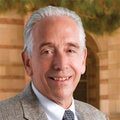Outline of the Course
Day One
The Why: Establishing a theoretical framework for thinking about generations
The course begins with exploring the 'why' of the generational phenomenon. You will prepare to articulate the need for organizational adaptation (recruiting, training, processes, procedures, knowledge transfer, mentoring, and other dynamics).
Day Two
The What: Discussing current challenges presented in a multigenerational workforce
Once we gain a perspective on generational differences, we will identify specific challenges organizations and course participants are experiencing. The list of challenges that emerge from class discussion will inform real-world intervention strategies for leading today's workforce.
Day Three
The How: Discovering management competencies that lead to effectiveness
We will learn the competencies that differentiate effective managerial leaders from those who struggle with a multigenerational workforce. Participants are invited to suspend their perspectives and explore the values behind the behaviors of the various generations in the workforce. Participants will consider how their management approach is reflected or not reflected in the list of competencies.
Day Four
Discussing current challenges, young professionals face
We will discuss young professionals' challenges when they enter careers and how managers can help them overcome career barriers. The session will be significant for onboarding and developing young professionals.
Day Five
Preparing emerging leaders
We will identify personal challenges young professionals face when transitioning into management and how to help them negotiate the fear of disappointing their boss or isolation from former peers they experience. The ability to deal with ambiguity and decision-making will be a focus.
Team Project Assignment: Role-Play Exercise
Role-play: To act out or perform the part of a person or character, for example, as a technique in training.
Objective:
Learn how to apply the core competencies to real-life situations or help young professionals overcome a challenge they face in the workplace. Please refer to your notes for competencies and challenges. Select one of the nine competencies or one of the challenges and create two role-plays in which you use a competency or challenge in a work situation. One role-play will be utilizing a competency to engage the employee effectively. The other role-play will be an example of what not to do. The role play should be 5 to 7 minutes.
Course Learning Outcomes:
- Explain the dynamics at play in a multigenerational workforce
- Describe the theoretical framework for thinking about generations
- Use nine competencies critical to managing today's workforce
- Describe the challenges young professionals face when entering the workforce and how to coach them for success
- Recognize and address personal and organizational bias
- Develop emerging leaders
- Work cross-generationally






